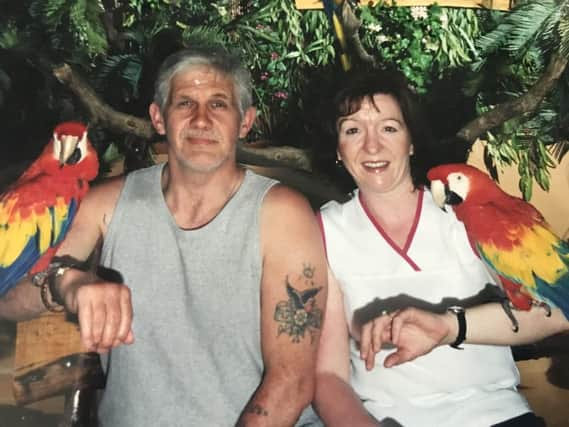Quirk of Scottish law holds key to grieving mother’s bereavement support


Denise Robertson, from East Lothian, was told just days after losing Gary Dunn she was ineligible for thousands of pounds because they never wed or entered a civil partnership.
But now the UK government will reconsider after her daughter found an obscure law that may mean they get the cash if friends thought Mr Dunn and her mother were married.
Advertisement
Hide AdAdvertisement
Hide Ad“The Department for Work and Pensions has passed my appeal on to a different department,” said Ms Robertson, 58, from Macmerry.
“Seemingly they have opened a new case and are going to treat my appeal under Scottish law and not the English law.”
Daughter Charlene Campbell spent hours poring through online documents and archives to unearth a type of irregular marriage called “marriage by cohabitation with habit and repute”.
Rarely used in practice, it can apply to couples who have lived together and were thought to be married. It was abolished by the Family Law (Scotland) Act 2006, except for very particular circumstances, and so only relationships established before May 2006 will be recognised.
“They are getting in touch with me to arrange a visit to the house to speak with me and ask questions about our 20-year relationship,” said Ms Robertson.
“Under Scottish law, if myself, Gary and others before 2006 saw us as husband and wife then I should have a good case. They will have to interview people that knew us but that won’t be a problem as we were seen and did live as common law husband and wife.”
Ms Robertson switched jobs and moved house to care for Mr Dunn who was disabled and the loving couple brought up a daughter together.
Former soldier Mr Dunn was diagnosed with chronic rheumatoid arthritis at the age of just 21 – a condition leading to a deterioration in his health later in life. Yet his death from pneumonia at the Royal Infirmary last month, aged 57, after breaking his hip in a fall at home still came as a devastating shock to his family.
Advertisement
Hide AdAdvertisement
Hide AdTen days later, Ms Robertson received a letter from the Department for Work and Pensions confirming she and her family were ineligible for bereavement support by law.
The couple met in 1999 and moved in together in Prestonpans, bringing up daughter, Rachael, now 17.
Ms Campbell said: “If they were married, even just for one hour then my mum would have been entitled to a bereavement support payment which would help support my sister.”